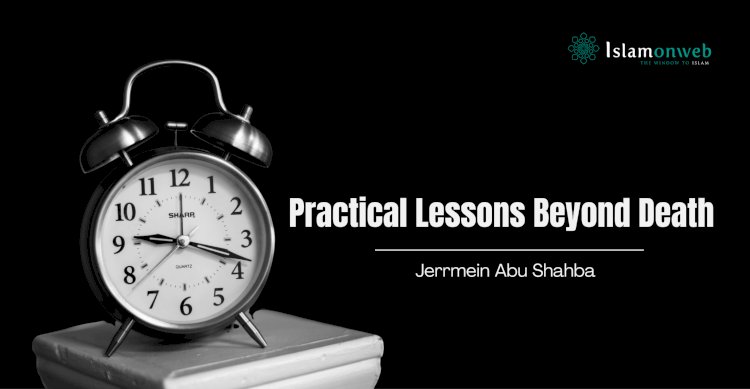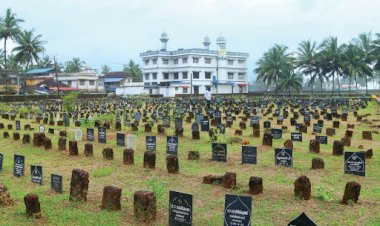Practical Lessons Beyond Death
This article is dedicated to my dear friend, a devout Sayyida believer whom I have lost.
Undeniably, death is considered to be the universally agreed-upon reality that each creature will taste. Many of us have experienced the loss of a loved one, whether it be a family member, relative, friend, or community member. Many have attended viewings to give their last farewell and join burial and funeral processions. In all such grim occasions, the human intellect is forced to pause and reflect on what lessons we can take from the bitter reality of death. Here are some points to consider:
1) Avoid Procrastination – As teens and youth, and as middle-aged individuals who live today where the average life expectancy in the world across genders is currently 73.5 years[1], people have become more used to the idea that we have a lot of time to live. Hence, adopting the feeling of non-urgency in taking action in important affairs of life, such as spirituality, self-transformation, correcting behaviour, and doing good. Procrastination has become the norm, even though we may witness a neighbour or community member who passes away young, yet we tend to think that this won’t happen to us. The reality is that death is looming around us invisibly and is at the tip of our fingers, regardless of age and health, as the Almighty God says in the Quran, “Nor does anyone know in what land he shall die.” [31:34]
The question begs itself: When the time comes, are we prepared to transition to the next life? Did we present enough good deeds now that would make us feel at ease? The reality is that no matter how much we do, we are deficient in the rights of God, and we are always in need of His infinite mercy. However, we should strive to be mindful of our duties and responsibilities that fall upon us and to do as much good as possible without delay. When a good deed comes to mind, hold on to it and create a plan to execute that deed as soon as possible. Waiting till tomorrow or waiting till we are ‘ready’ is a tactic of Satan that pushes us to create an excuse with seemingly positive intention; however, it hurts us in the long run. As Allah SWT depicts the state that the wrongdoers will be in on the Day of Judgment, as they will say, “That I might do righteousness in that which I left behind.” [23:100]. Every minute in our lives counts, and we will be asked how we spend our time.
2- Drop the Greed for Materialism – It is easy to get wrapped up in the worldly limelight of gaining wealth, buying property, and pursuing authority, power, and women. Such a pursuit blinds us from the reality of the afterlife that lies ahead. Remember, the materials we collect from this life won’t enter with us into our graves; only the good deeds will. The more we are detached from this world, the more we will pass by the worldly pleasures without attachment, and we will be mindful of the hereafter and strive harder to attain eternal salvation.
3- Abandon the drama and let go of the resentment – If we truly recognise that this life is only a bridge to the next permanent world, then we will realise that it is not worth spending too much time nitpicking or bickering on the bridge. Our mindset will be developed such that we overlook issues, avoid being dramatic, and keep our eyes focused on the reality of tomorrow. Holding on to grudges, being oversensitive and having resentment will only hold us back in keeping focused on our duties towards God and our service to Him. As Allah (SWT) emphasises in the Holy Quran, “Let them forgive and overlook, do you not wish that Allah should forgive you?” [24:22]
4-Remember that deeds have an effect beyond death – We may think that once we depart this life that the faucet of our deeds is closed shut, whether good or bad. Yes, we can no longer offer new deeds. However, the effects of our deeds linger on, whether positive or negative. For example, some good actions act as sadaqa jariya, and their reward is seen on the ground and felt by the deceased long after. Deeds such as building an orphanage, writing a book, making charitable contributions, and teaching the next generation. Likewise, some bad deeds carry a negative effect past death, such as injustice committed; for example, in writing a will that creates mischief among the children when settling inheritance. Or a secret that is revealed past the grave that brings disappointment and causes harm to others, or leaving behind children who disobey God due to our neglect. The soul of the deceased is alive, and it can either live peacefully in the world of Barzakh (purgatory) or experience pain and suffering due to what was presented in this life. As Allah (SWT) states, “Indeed, it is We who bring the dead to life and record what they have put forth and what they left behind...” [36:12]
5-Maintain positive relations – Relationship issues are common and have their ups and downs; however, we shouldn’t let petty issues sever our relationships or lead to cutting contact for an extended time. The Messenger of Allah (ﷺ) said, "It is not lawful for a Muslim to desert (stop talking to) his brother beyond three nights, the one turning one way and the other turning to the other way when they meet, the better of the two is one who is the first to greet the other."[2] Life is too short, and we don’t know if we will lose them before our eyes today, and we haven’t said goodbye or spoken to them in ages. We often don’t realise each other’s value till we lose or miss them. Therefore, let’s go ahead and express to our friends and close ones that we love them, and let them hear it from us from time to time. It helps us with grief and healing when we know that we have said the words ‘I love you’ recently or spoken to them. Regret is difficult to heal from, while being proactive and taking the initiative has long-lasting positive effects on both sides.
6-Die before we die - When a person departs this world, we bid farewell to them at their funeral and as they are lowered into their graves. We have a chance to wake up from our state of negligence and take our lives more seriously. However, the person who has died does not have that opportunity to wake up. As Amīr al-Muʾminīn ʿAlī ibn Abī Ṭālib رضي الله عنه states, “Die before you die.” When a believer departs this life, they are also bidding farewell to their loved ones in this world, their children, spouse, or parents, etc. Are we ready for that unplanned farewell? Did we leave a clear and executable will behind? Did we raise their children properly on the path of truth and service of God? Did we settle our conflicts, loans, and issues with other people? Did we perform our Wajib prayers and obligations? Or will our children be left to carry that burden on our behalf? Also, by maintaining good manners and ethics with our family and community members, on the day we depart, they will eagerly offer good deeds on our behalf, and they will pray for us after our death, even more than during our life. This will be a result of the good impression and legacy we left behind.
Death can come anytime, so we should be ready to depart by fulfilling our duties and settling our dues in all forms in a timely manner, so that our death does not cause difficulty to others in this life, and to us in the next. We have traditions which indicate that the soul of the deceased will hover over his body till it gets to the burial site, and he calls out, “My family and my children, don’t let the world play with you like it fooled me!” Now is the time to wake up and do what is good and avoid what is forbidden. Now is the time to manifest the words called every day in the Adhaan, ‘Hayya a’la Khayrul ‘Amal!’ (Let’s do the good deed). With sincerity of intention and consistent effort, Allah (SWT) will accept the little we present and forgive the many sins we commit by His infinite mercy and generosity.
About the author:
Jerrmein Abu Shahba obtained her BS in Biology and MS in Chemistry from Rutgers State University of NJ. She obtained her second master’s degree in Exegesis and Quranic Sciences and is currently pursuing a Master's degree in Positive Psychology and Life Coaching. Jerrmein is a Clinical Research Scientist by profession and is a Certified Life and Health Coach.
Reference
[1] https://www.worldometers.info/demographics/life-expectancy
[2] Sahih al-Bukhari 6237
Disclaimer
The views expressed in this article are the author’s own and do not necessarily mirror Islamonweb’s editorial stance.
























Leave A Comment